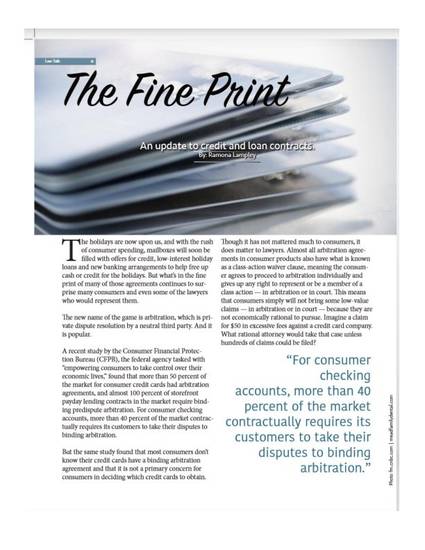
A recent study by the Consumer Financial Protection Bureau (“CFPB”), the federal agency tasked with “empowering consumers to take control over their economic lives,” found that more than 50 percent of the market for consumer credit cards had arbitration agreements, and almost 100 percent of storefront payday lending contracts require its customers to take their disputes to binding arbitration. The same study found that most consumers do not know their credit cards have a binding arbitration agreement and that it is not a primary concern for consumers in deciding which credit cards to obtain.
However, almost all arbitration agreements in consumer products also have what is known as a class-action waiver clause, meaning that the consumer agrees to proceed to arbitration and give up any right to represent or be a member of a class action—in arbitration or in court. The CFPB recently announced that it will propose a rule banning the class-action waiver in all consumer financial products arbitration agreements. The CFPB’s proposed rule will be welcome news to many consumer-rights attorneys, who have found attempts to adjudicate small value claims on behalf of a class thwarted by the class-action waiver. The result will almost surely be that financial companies will stop offering arbitration as an alternative to litigation.
